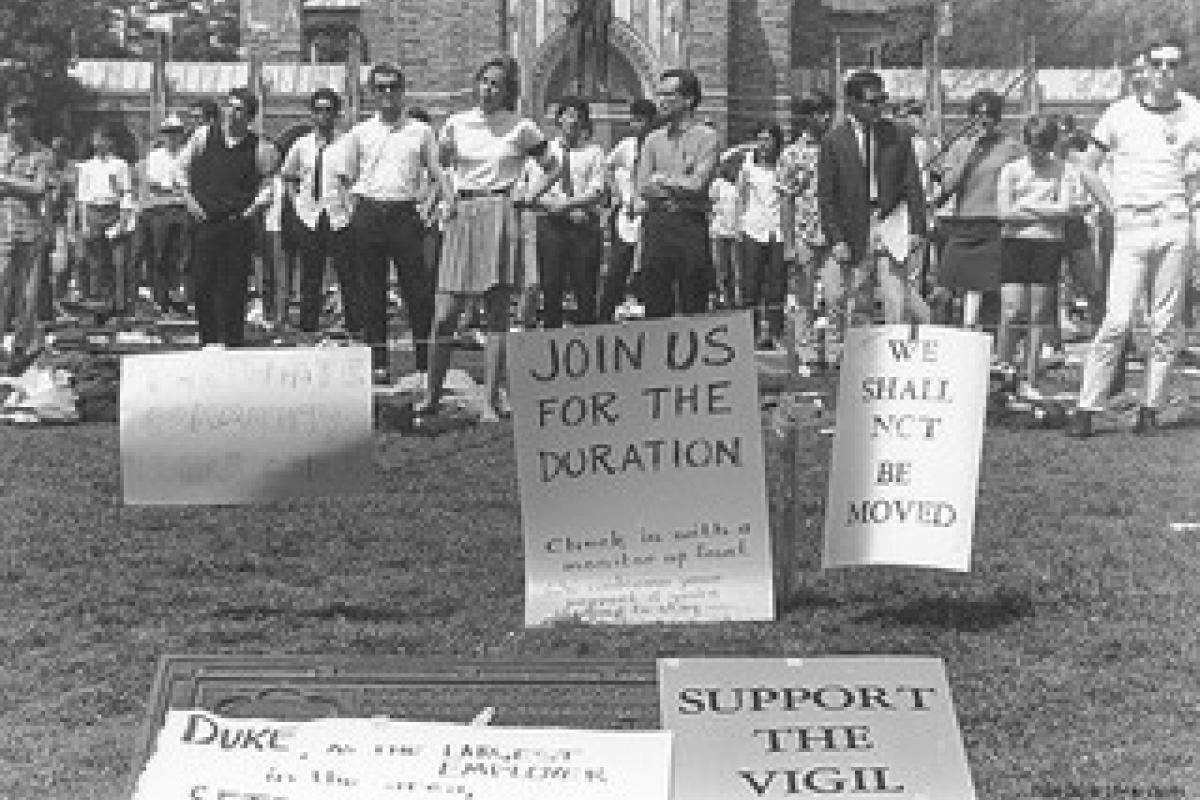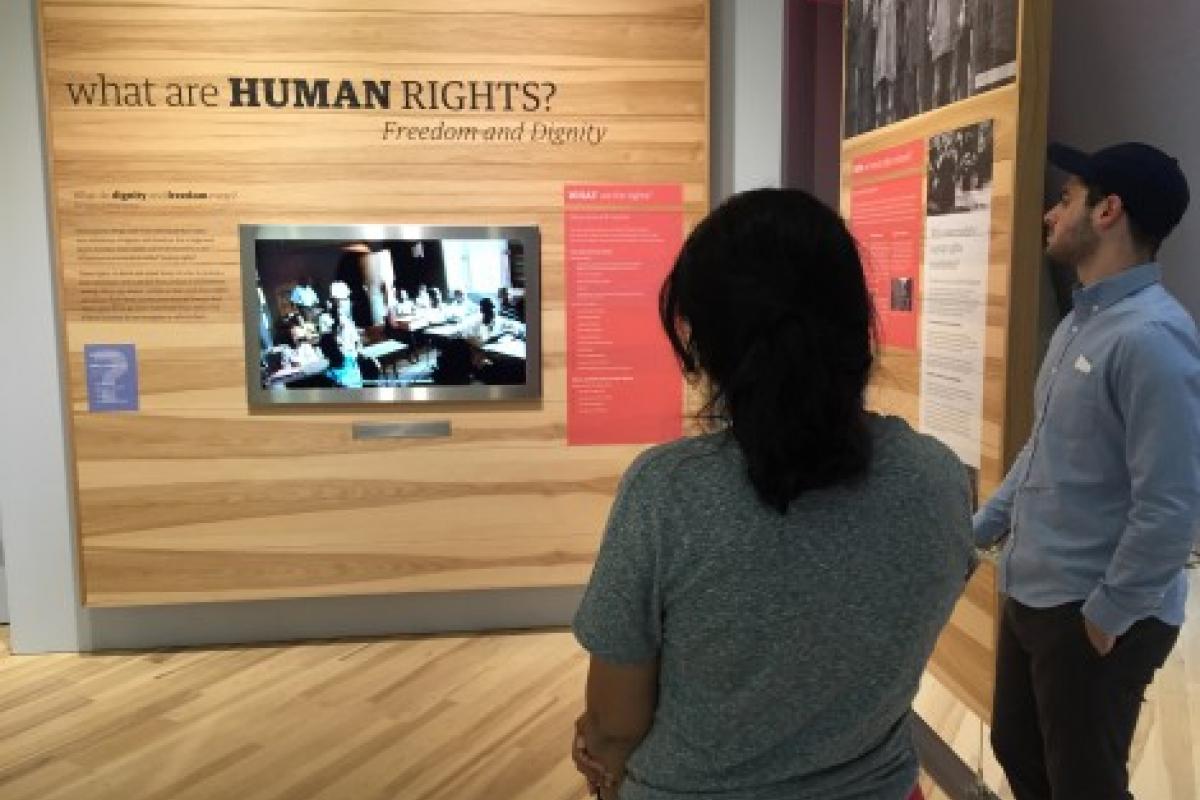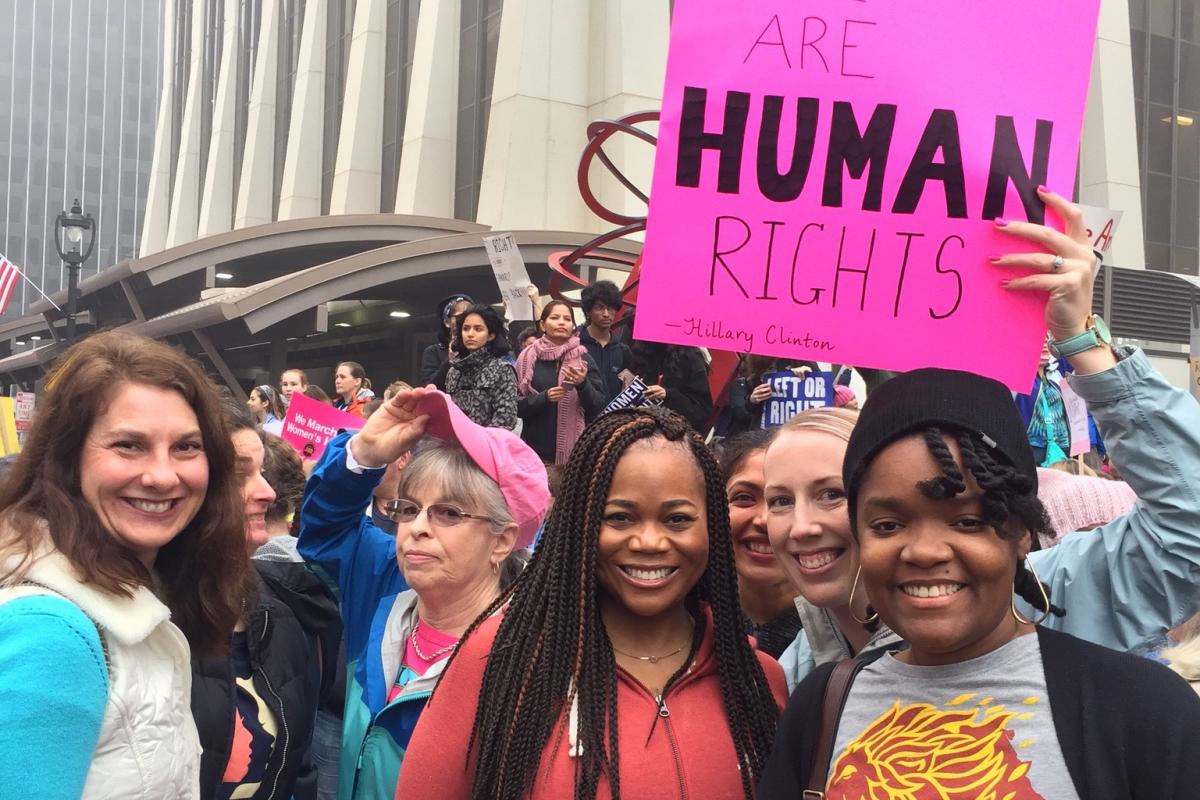History of Human Rights at Duke University
As part of its mission, the Duke Human Rights Center at the Franklin Humanities Institute sees the history of the American South as integral to its practice and study of human rights. Even as some of the worst abuses of slavery and segregation took place in this region, it was also the cradle of robust and effective rights activism, which continues to inspire contemporary leaders. From South Africa to Burma, Northern Ireland and beyond, the thinking, techniques and examples of Americans like Dr. Martin Luther King, Jr., Durham native Floyd McKissick and many others continues to inform rights movements. At the same time, examining the role and actions of major institutions like Duke in the context of abuses is a key critical exercise in understanding how individuals, groups and societies can turn a blind eye to or contribute to abuses or take action to end them.
In 2009, the DHRC launched the Pauli Murray Project, a multi-faceted suite of public programs and events at Duke and in the Durham community that incorporates cutting edge human rights thinking and techniques into an outreach to the Durham community around the legacy of slavery and segregation and the possibility of reconciliation
Duke has also been home to scholars and activists in human rights, among them Genocide Convention author Rafael Lemkin and Dr. Peter Storey, who co-chaired the regional Peace Accord structures intervening in political violence before South Africa’s first democratic elections and was appointed by President Nelson Mandela to help select the nation’s Truth and Reconciliation Commission.
DHRC Mission Statement
The Duke Human Rights Center @ the Franklin Humanities Institute brings together an interdisciplinary group of scholars, staff and students to promote new understandings of and action on human rights. We engage with issues of race, ethnicity, gender, sexuality, religion, income inequality, the environment, the philosophy and history of human rights, the literature that emerges alongside it, linguistic rights, and artistic responses in our research, teaching, programming and outreach. Our goal is to foster strategies and collaborative, cross-disciplinary and critical thinking about human rights in both local and global contexts. The Center is committed to social justice. In partnership with the FHI, we see the humanities as an essential frame and launch point for inquiry. We develop undergraduate courses and global experiences, sponsor campus-wide events that encourage awareness and activism on human rights and engage in long-term partnerships with community-based organizations.
The Center is dedicated to teaching and practicing human rights both at home and abroad. As a university entity, we encourage our students to think deeply about human dignity and rights at the same time that they understand their history, development and practice. With this in mind, we take this extraordinary opportunity to reassert, for our faculty, staff and students, the critical importance of respect for human rights as a core value. Sexism, racism and hatred of the other based on ethnic origin, sexual orientation, disability, gender identity or religion are abhorrent and violations of basic principles of equality and mutual respect.



